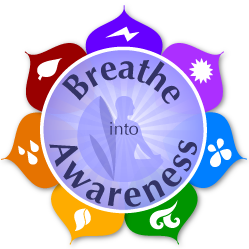Written By: Susie Howell
Yoga Supports Recovery from Substance Abuse
Yoga not only improves muscle strength and flexibility, but it can also benefit a range of health problems affecting your physical and mental wellness. From easing back pain and lowering blood pressure to reducing feelings of anxiety, taking part in yoga can help many people to enhance their well-being. There is also evidence that yoga is a useful adjunct during recovery from substance abuse. This is relevant, as substance dependency is a growing problem, with figures from the World Health Organization (2004) suggesting that as many as 16% of adults are dependent on alcohol in some areas and up to 3% on drugs. It is important not to forget that dependency on nicotine is also an important issue, as this is one of the leading causes of death that could be prevented.
Yoga as therapy
Although it is important that anyone affected by alcohol or drug abuse receives professional treatment, with the Coalition against Drug Abuse advising that you should always encourage a loved one to seek help, complementary treatments, such as yoga, can play a role in their rehabilitation. Equally, yoga can enhance the success of smoking cessation when used alongside nicotine replacement therapy, medication or counseling. Indeed, much of the benefits of yoga in substance dependency have focused on its positive influence on helping smokers to quit. For instance, a review article published in the Journal of Evidence-Based Complementary and Alternative Medicine (2014) investigating the effects of yoga in smoking cessation found that overall yoga was able to enhance the success of people’s quit attempts. Cravings are often a particular issue when trying to give up cigarettes or another addictive substance, but research reported in Psychopharmacology (2013) showed that yogic breathing exercises were an effective way to manage cigarette cravings in the short-term. However, what about the benefits of yoga in alcohol and drug treatment programs and its potential mechanisms?
Reducing depression and stress associated with substance abuse
While there are a limited number of studies investigating yoga for recovery from alcohol and drug abuse, the evidence available does show promise. For example, in one study published in the Journal of Affective Disorders (2006) participants who had undergone alcohol detox and then a yoga intervention for a fortnight benefited from improved mood during this early period of abstinence, as well as reduced levels of the stress hormone cortisol. Similarly, research recorded in the journal Nursing Research (2013) highlighted that a six month yoga course alongside a heroin withdrawal program improved mood and quality of life, which were generally low among the women at the start of the study. These changes can enhance the success of treatment, as according to the Mayo Clinic depression and anxiety are risk factors for substance abuse, which can make it harder to quit and stay abstinent. However, even if people are not suffering from clinical depression or anxiety, but are under particular stress at work, home or in another aspect of their life, this can also make them more vulnerable to substance misuse, which offers a temporary escape. Thankfully, the stress relieving benefits of yoga are widely known, with the Cleveland Clinic discussing that yoga is particularly beneficial as you can put your yogic breathing and poses into practice when you feel your stress levels rising.
Other ways in which yoga can help
While yoga can relieve both low mood and stress, there are also likely other mechanisms at play when used in addiction recovery. An article reported in Substance Abuse (2009) highlighted the importance of mindfulness for dealing with unpleasant thoughts, which may help to reduce the likelihood that people will turn to destructive habits and may also help to reduce cravings. However, yoga may help in other ways too. For instance, yoga offers a positive activity to take part in, serving as a helpful distraction and an easy way to fill a gap in your time, both occasions when you might otherwise be tempted to resume your substance of choice. Yoga also provides the opportunity to meet other people through classes, with positive social interaction and support known to enhance the success of recovery, particularly as forming new friendships encourages you to leave unhelpful relationships behind that might otherwise hinder your progress.
OM SHANTI SHANTI SHANTI
